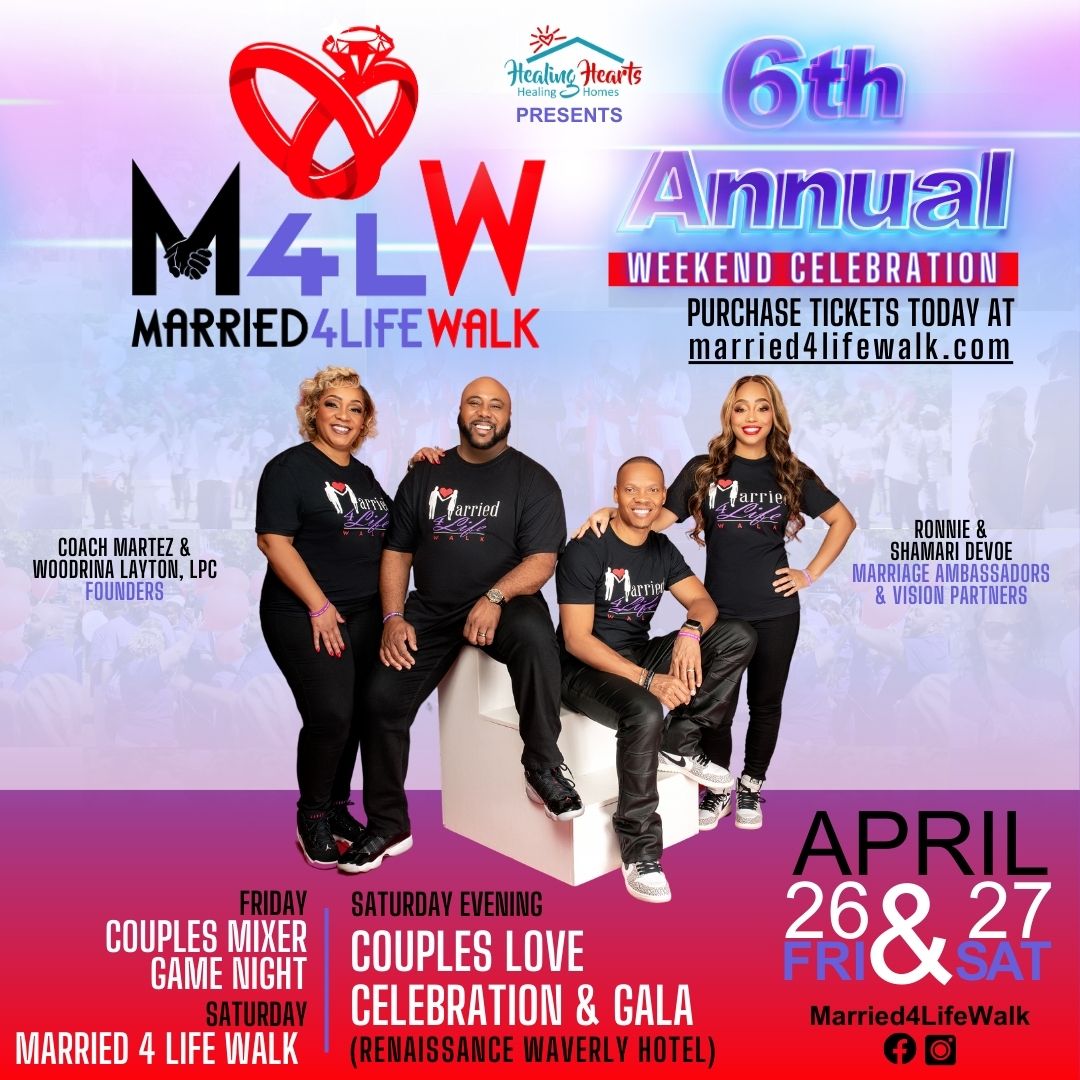Ayiti! Ayiti! Ayiti! Director Robenson Lauvince’s Film ‘July 7’ Reclaims Haiti’s Narrative on President Moïse’s Assassination

In the heart of Atlanta, I sat down with Haitian filmmaker Robenson Lauvince to discuss one of the most anticipated international films in recent years: July 7th: Who Killed the President of Haiti? What began as an exploration of a tragic political event unfolded into a conversation about legacy, truth, and the power of telling your own story.
From the opening of our conversation, Lauvince made it clear—this was more than just a movie. “It’s the first time we get to talk about ourselves,” he said. And he meant that literally. With 90% of the cast and crew being Haitian, the film is deeply intentional in its authenticity. Shot in Creole and French, and featuring cultural giants like former Miss Universe Haiti and acclaimed author Gary Victor, the project is a landmark achievement in Haitian storytelling.
A Story That Had to Be Told
When asked what compelled him to tell this story, Robenson didn’t hesitate. “Haiti is the first Black independent nation in the world,” he said, passionately. “But we’ve always been silenced. Misrepresented. Forgotten.” That frustration turned into fire, fueling a production that became his most serious and personal work to date.
The film’s gripping trailer—tense, evocative, and emotionally rich—set the tone for what audiences could expect. But Robenson revealed it wasn’t just crafted for impact—it was a solo mission. Due to the language barrier with his production team, he had to create the trailer on his own. “I wanted it to feel urgent. Honest. I wanted people to want more.”
Not Just a Day, But a Movement
While the film’s title references the day Haitian President Jovenel Moïse was assassinated, Lauvince emphasizes that the story isn’t confined to that moment. “This isn’t about one day,” he said. “It’s about how we got here. About a system designed to divide us.”
The film dives deep into Haiti’s historical, cultural, and spiritual foundation. It’s a layered portrayal of a people often painted in a singular, monolithic way. And it’s not afraid to hold a mirror up to internal conflict either—highlighting how systemic manipulation often turns Haitian against Haitian.
A Global Response Rooted in Pride
With over $60,000 in pre-sale tickets and a Miami premiere that drew over 2,000 attendees, the response has been overwhelming. Haitians across the globe—UK, Africa, Canada, and beyond—bought tickets even if they couldn’t attend. “We’re prideful,” Robenson said. “When one of us does something good, we show up.”
That energy has caught on outside of the Haitian community too, with African-American executive producers and allies joining the movement. “Our PR rep is a woman, my assistant director is a woman—it’s women that have driven this engine.”
The Risk and the Reward
Taking on a story of this magnitude wasn’t just emotionally heavy—it was dangerous. “This kind of truth-telling comes with risk,” Robenson admitted. “People don’t know your intentions. They don’t know what you might reveal.”
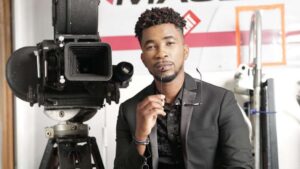
But the reward? Global distribution. A cultural awakening. And perhaps most importantly, a reminder to Haitians everywhere that their voice, their pain, and their power matter.
“We can’t wait for others to tell our stories anymore. If you’re a singer, sing. If you’re a writer, write. If you’re a filmmaker, make films. That’s how we take our voice back.”
As for what’s next? Robenson teased more Caribbean-rooted stories—less political, but equally powerful. And while he carries the weight of a nation’s voice, he does so with pride, clarity, and unshakable purpose.


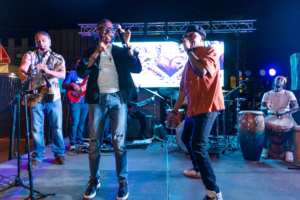 Daniel Moijueh, Executive Director of Fenton Village in Silver Spring, Maryland, is dedicated to protecting and fostering growth within this vibrant community. Home to approximately 240 businesses, Fenton Village is a thriving neighborhood with establishments ranging from restaurants and salons to music and art stores. Under Moijueh’s leadership, the community is adapting to ongoing development, positioning itself as an enduring cultural and economic hub.
Daniel Moijueh, Executive Director of Fenton Village in Silver Spring, Maryland, is dedicated to protecting and fostering growth within this vibrant community. Home to approximately 240 businesses, Fenton Village is a thriving neighborhood with establishments ranging from restaurants and salons to music and art stores. Under Moijueh’s leadership, the community is adapting to ongoing development, positioning itself as an enduring cultural and economic hub.




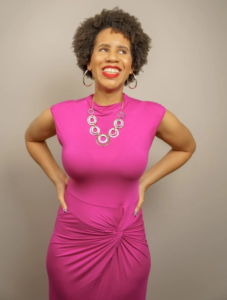 Kamille Richardson, founder and CEO of iSee Technologies, has turned the challenges she faced into powerful tools for change. Born blind, Kamille’s early career search was marked by rejection and biases, as many hiring managers were unwilling to accommodate or understand her blindness. These setbacks, rather than deterring her, fueled her resolve to create her path. Instead of being defined by the barriers imposed by others, Kamille decided to hire herself, which became the solution to the problems she faced.
Kamille Richardson, founder and CEO of iSee Technologies, has turned the challenges she faced into powerful tools for change. Born blind, Kamille’s early career search was marked by rejection and biases, as many hiring managers were unwilling to accommodate or understand her blindness. These setbacks, rather than deterring her, fueled her resolve to create her path. Instead of being defined by the barriers imposed by others, Kamille decided to hire herself, which became the solution to the problems she faced.
 Kamille Richardson and Lakila Bowden have taken their distinct paths and combined them to create iSee Technologies, a company that provides people development solutions with a focus on workforce wellness, performance enhancement, and inclusive workplaces. Their work shifts the hearts and minds of organizations, helping teams collaborate more effectively, boost profitability, and motivate employees to perform at their best.
Kamille Richardson and Lakila Bowden have taken their distinct paths and combined them to create iSee Technologies, a company that provides people development solutions with a focus on workforce wellness, performance enhancement, and inclusive workplaces. Their work shifts the hearts and minds of organizations, helping teams collaborate more effectively, boost profitability, and motivate employees to perform at their best.
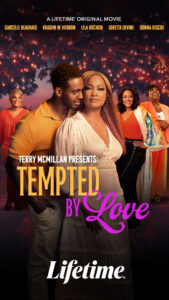 Tempted By Love weaves together a steamy May-December romance, centering on Ava (
Tempted By Love weaves together a steamy May-December romance, centering on Ava (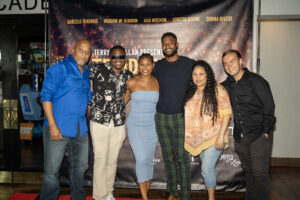

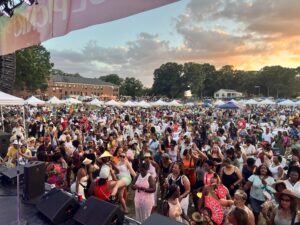 The event was more than just a musical feast. It was a community celebration featuring a diverse range of vendors that catered to every taste. From delectable food vendors to unique merchandise, there was something for everyone. Local artisans and small businesses had the perfect platform to showcase their businesses, contributing to the inclusive and community-filled atmosphere.
The event was more than just a musical feast. It was a community celebration featuring a diverse range of vendors that catered to every taste. From delectable food vendors to unique merchandise, there was something for everyone. Local artisans and small businesses had the perfect platform to showcase their businesses, contributing to the inclusive and community-filled atmosphere.
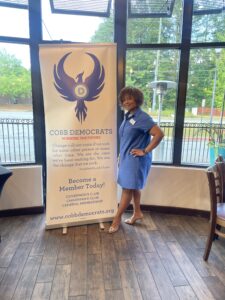
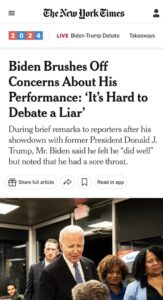

 The Journey to Brij The Gap
The Journey to Brij The Gap

 In the world of real estate, it’s rare to find a professional who seamlessly combines a deep understanding of the market with a passion for nurturing talent and fostering education. Danielle Andrews, an established realtor at Realty ONE Next Generation, does just that. With a career that spans multiple states, Danielle brings a wealth of experience and a diverse perspective that has proven invaluable to her clients and team.
In the world of real estate, it’s rare to find a professional who seamlessly combines a deep understanding of the market with a passion for nurturing talent and fostering education. Danielle Andrews, an established realtor at Realty ONE Next Generation, does just that. With a career that spans multiple states, Danielle brings a wealth of experience and a diverse perspective that has proven invaluable to her clients and team. D
D